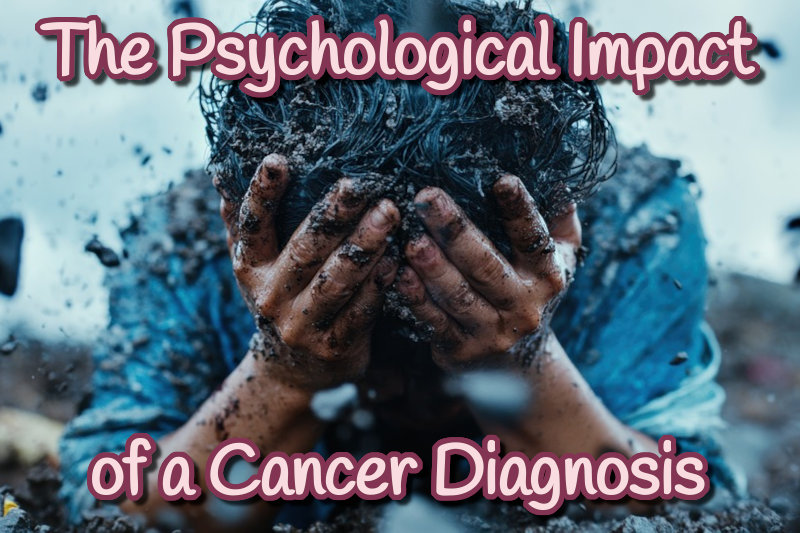The Psychological Impact of a Cancer Diagnosis

August 21st, 2024 | Cancer
Cancer Impacts Us Mentally
A cancer diagnosis is one of the most difficult pieces of news you can receive in your lifetime. Not only can cancer affect one physically but also mentally. Feelings of fear, uncertainty, and distress often accompany a diagnosis and can persist throughout treatment. Thus, understanding the psychological effects of a cancer diagnosis is important in order to address your mental health needs and wellbeing.
The initial reaction
After an initial cancer diagnosis, many individuals are met with feelings of shock and disbelief. We often hear about others getting cancer, be it our friends, family, or colleagues, but to hear it for oneself is a whole different story. Some patients will feel numb, not entirely processing the diagnosis and what it means for them.
After the initial shock, fear and anxiety tend to set in. Cancer brings about a lot of unknowns, including one’s prognosis, likelihood of survival, treatment options, side effects of treatment, and more. The flurry of questions in these beginning stages can bring about a lot of distress as patients work through the uncertainties of their condition.
A lot of people will also experience denial because they struggle to accept their diagnosis. Denial is used as a coping mechanism, although it tends to hinder one’s ability to get treatment and support quickly.
Emotional rollercoaster during treatment
Unfortunately, the psychological impacts of cancer persist well into treatment. Treatment is often associated with several physical side effects such as fatigue, pain, and changes to one’s appearance. For example, individuals may experience things like hair loss and weight fluctuations, which can significantly impact one’s self-esteem. As a result, one’s mental health may suffer.
The intensity of treatment can also lead to feelings of isolation. The demands of medical care, coupled with the potential depression and anxiety associated with the diagnosis, can make it difficult for patients to maintain their usual social calendar and relationships.
Long-lasting impact
Even with completion of treatment, the psychological effects of the cancer diagnosis can persist. A lot of people will have anxiety about the cancer returning, and some may even have post-traumatic stress disorder (PTSD) because of the trauma associated with their cancer treatment.
Additionally, some may find that the depression and anxiety they experienced during treatment linger post-treatment. This can be because of the life changes they experienced during treatment, be it a loss of identity, leaving a job, or losing relationships.
Recent Posts
- Battling Nausea During Chemo Treatment: Tips and Strategies for a More Comfortable Journey
- A Practical Guide to Traveling with a Baby in Winter
- Keeping Your Baby Warm During a Winter Power Outage: A Comprehensive Guide
- Setting Goals for Your Cancer Journey – A Roadmap to Wellbeing
- Cozy Comforts for Winter: Creating a Sanctuary for Young Children at Home
Categories
- All-Natural (4)
- Blog (47)
- Cancer (76)
- Diet (15)
- Holidays (27)
- Lifestyle (69)
- Motion Sickness (44)
- Nausea (105)
- New Mothers (39)
- Oncology Testimonials (3)
- Prebiotics (1)
- Preggie Products (11)
- Preggie Testimonial (23)
- Pregnancy (158)
- Queasy Products (7)
- Queasy Testimonial (17)